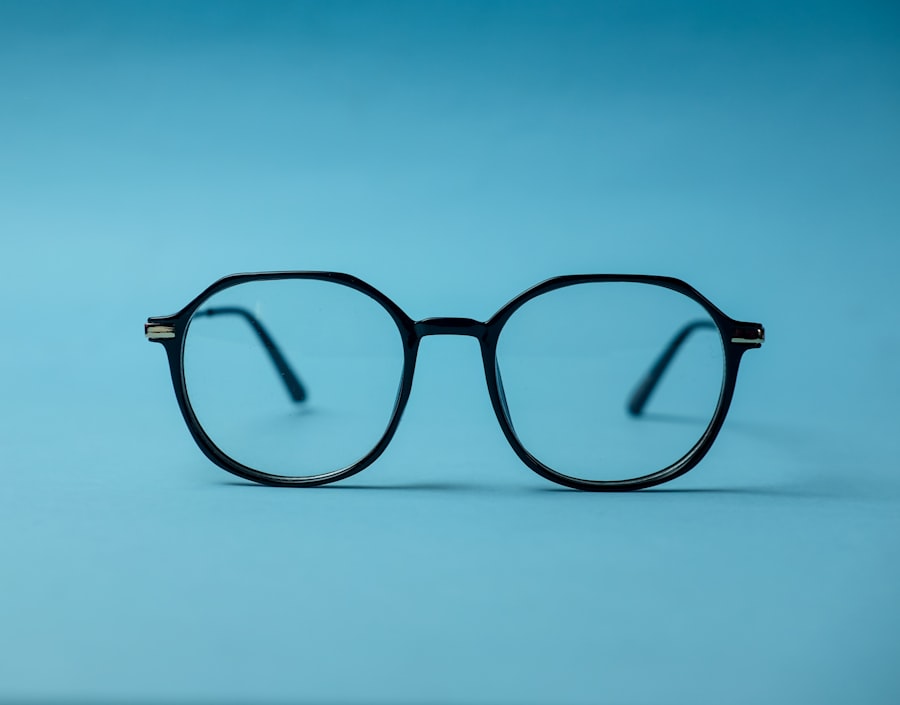In recent years, laser hair removal has emerged as a popular choice for those seeking a long-term solution to unwanted body hair. You may have heard about its effectiveness and convenience, but what exactly does this procedure entail? Unlike traditional methods such as shaving or waxing, which require frequent maintenance, laser hair removal offers a more permanent reduction in hair growth.
This innovative technique utilizes concentrated beams of light to target hair follicles, effectively disrupting their ability to produce hair. As you consider this option, it’s essential to understand not only how it works but also the potential risks and precautions associated with the treatment. The appeal of laser hair removal lies in its promise of smooth skin without the hassle of regular upkeep.
Many individuals find themselves drawn to this method due to its efficiency and the long-lasting results it can provide. However, as with any cosmetic procedure, it’s crucial to be well-informed before making a decision. Understanding the mechanics behind laser hair removal, its potential side effects, and the necessary precautions can help you make an educated choice that aligns with your personal needs and expectations.
Key Takeaways
- Laser hair removal is a popular method for long-term hair reduction and uses concentrated light to target hair follicles.
- The process works by damaging the hair follicle to inhibit future hair growth, but it can also carry potential risks such as skin irritation and pigment changes.
- While the eyes are generally protected during laser hair removal, it is important to wear protective eyewear to prevent any potential damage.
- Precautions during laser hair removal include avoiding sun exposure and certain medications that can increase the risk of complications.
- Signs of eye damage from laser hair removal may include redness, irritation, and sensitivity to light, and seeking medical attention is crucial if these symptoms occur.
How Laser Hair Removal Works
How it Works
When you undergo this treatment, a specialized laser emits a concentrated beam of light that is absorbed by the melanin in your hair follicles. This process generates heat, which damages the follicle and inhibits its ability to grow hair in the future.
Factors Affecting Effectiveness
The effectiveness of this method largely depends on the contrast between your skin tone and hair color; darker hair on lighter skin tends to yield the best results.
What to Expect During and After the Procedure
During your session, you will likely experience a sensation similar to that of a rubber band snapping against your skin. While this may sound uncomfortable, many clinics offer cooling devices or topical anesthetics to minimize any discomfort you might feel. The procedure typically lasts anywhere from a few minutes to over an hour, depending on the size of the area being treated. Afterward, you may notice some redness or swelling, but these side effects usually subside within a few hours. Understanding how laser hair removal works can help you set realistic expectations for your results and recovery.
Potential Risks of Laser Hair Removal

While laser hair removal is generally considered safe, it is not without its risks. As with any medical procedure, there are potential side effects that you should be aware of before proceeding. Common side effects include temporary redness, swelling, and discomfort in the treated area.
In some cases, you might also experience changes in skin pigmentation, particularly if you have darker skin or if the procedure is not performed correctly. These changes can manifest as either hyperpigmentation (darkening) or hypopigmentation (lightening) of the skin. More serious complications are rare but can occur.
For instance, if the laser is not calibrated correctly or if protective eyewear is not used, there is a risk of burns or scarring. Additionally, improper technique can lead to infections or blistering in the treated area. It’s essential to choose a qualified practitioner who has experience with laser hair removal to minimize these risks.
By being aware of potential complications, you can make an informed decision about whether this treatment is right for you.
Can Laser Hair Removal Affect Your Eyes?
| Question | Answer |
|---|---|
| Can laser hair removal affect your eyes? | Yes, if proper eye protection is not used during the procedure, the laser light can potentially harm the eyes. |
| How to protect the eyes during laser hair removal? | Special goggles or eye shields should be worn to protect the eyes from the laser light. |
| What are the potential risks to the eyes? | Potential risks include damage to the cornea, retina, or other parts of the eye, which can lead to vision problems. |
| Is it important to choose a qualified professional for laser hair removal? | Yes, choosing a qualified and experienced professional is crucial to minimize the risks and ensure proper safety measures are taken. |
One concern that often arises when discussing laser hair removal is its potential impact on your eyes. The lasers used in this procedure emit intense light that can be harmful if it comes into direct contact with your eyes. While most practitioners take precautions to protect your eyes during treatment, it’s crucial for you to understand the risks involved.
If proper eye protection is not used, there is a possibility of temporary or even permanent vision damage.
This eyewear helps shield your eyes from the intense light emitted during the procedure.
It’s essential that you wear this protective gear throughout your session to ensure your safety. Additionally, if you have any pre-existing eye conditions or concerns about your vision, be sure to discuss these with your practitioner before undergoing treatment.
Precautions to Take During Laser Hair Removal
Taking precautions before and during your laser hair removal sessions can significantly enhance your safety and comfort. First and foremost, it’s vital to choose a qualified and experienced practitioner who uses FDA-approved equipment. Researching their credentials and reading reviews from previous clients can help you find someone who prioritizes safety and efficacy.
Before your appointment, you should also avoid sun exposure and tanning beds for at least four weeks. Sunburned or tanned skin can increase the risk of complications during treatment. Additionally, refrain from using certain skincare products that may irritate your skin, such as retinoids or exfoliants, in the days leading up to your session.
Following these guidelines will help ensure that your skin is in optimal condition for treatment.
Signs of Eye Damage from Laser Hair Removal

If you are concerned about potential eye damage from laser hair removal, it’s essential to be aware of the signs and symptoms that may indicate an issue. Common indicators of eye damage include blurred vision, persistent pain or discomfort in the eyes, and sensitivity to light. If you experience any of these symptoms following your treatment, it’s crucial to seek medical attention promptly.
In some cases, you may also notice changes in your vision that could signal more severe damage. For instance, if you experience sudden flashes of light or floaters in your field of vision, these could be signs of retinal damage or other serious conditions. Being vigilant about these symptoms can help you address any potential issues early on and prevent further complications.
Seeking Medical Attention for Eye Damage
If you suspect that you have sustained eye damage as a result of laser hair removal, seeking medical attention should be your top priority. Contact an eye care professional immediately to discuss your symptoms and undergo a thorough examination. Early intervention can make a significant difference in preserving your vision and preventing long-term damage.
During your visit, be prepared to provide information about your recent laser hair removal treatment, including the type of laser used and any protective measures that were taken. This information will help your healthcare provider assess the situation more effectively and determine the best course of action for your recovery.
Conclusion and Recommendations
In conclusion, while laser hair removal offers a convenient solution for unwanted hair, it is essential to approach the procedure with caution and awareness. Understanding how it works, recognizing potential risks, and taking necessary precautions can help ensure a safe and effective experience. Always prioritize choosing a qualified practitioner who adheres to safety protocols and provides adequate eye protection during treatment.
As you consider laser hair removal as an option for yourself, weigh the benefits against the potential risks carefully. If you have any concerns about eye safety or other aspects of the procedure, don’t hesitate to discuss them with your practitioner beforehand. By being informed and proactive about your health and safety, you can enjoy the benefits of laser hair removal while minimizing any potential complications along the way.
If you are considering laser hair removal and are concerned about its potential effects on your eyes, you may find the article “Privacy Policy” on the In Laser Hair Removal website to be informative. This article may provide insights into the safety measures and precautions taken during laser hair removal treatments to protect your eyes from any potential harm. It is essential to understand the risks and benefits associated with laser hair removal to make an informed decision about this popular cosmetic procedure.
FAQs
What is laser hair removal?
Laser hair removal is a cosmetic procedure that uses a concentrated beam of light (laser) to remove unwanted hair. The laser targets the pigment in the hair follicles, damaging them and inhibiting future hair growth.
Can laser hair removal affect the eyes?
Yes, laser hair removal can affect the eyes if proper precautions are not taken. The intense light from the laser can potentially cause damage to the eyes if they are not adequately protected during the procedure.
How can the eyes be protected during laser hair removal?
To protect the eyes during laser hair removal, both the patient and the practitioner should wear appropriate eye protection. This typically involves wearing special goggles that are designed to shield the eyes from the laser light.
What are the potential risks to the eyes during laser hair removal?
The potential risks to the eyes during laser hair removal include damage to the cornea, retina, or other parts of the eye from exposure to the intense laser light. This can result in vision problems or even permanent eye damage if proper precautions are not taken.
Are there any specific eye conditions that may increase the risk of eye damage during laser hair removal?
Yes, individuals with certain eye conditions, such as retinal disorders or a history of eye surgery, may be at an increased risk of eye damage during laser hair removal. It is important for individuals with pre-existing eye conditions to discuss their medical history with the practitioner before undergoing the procedure.






